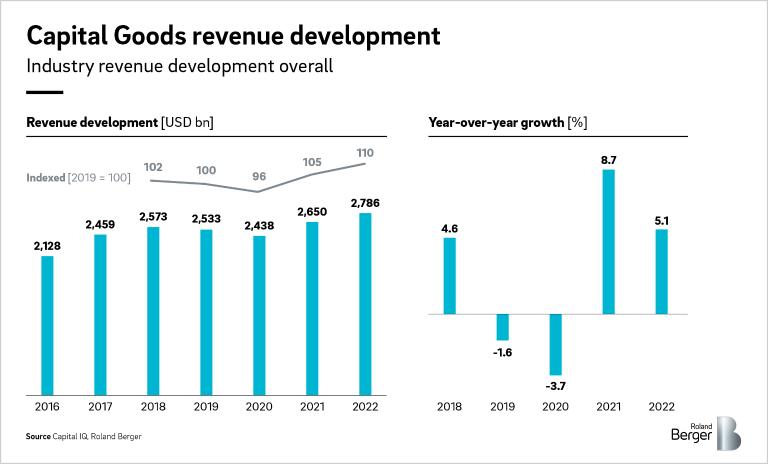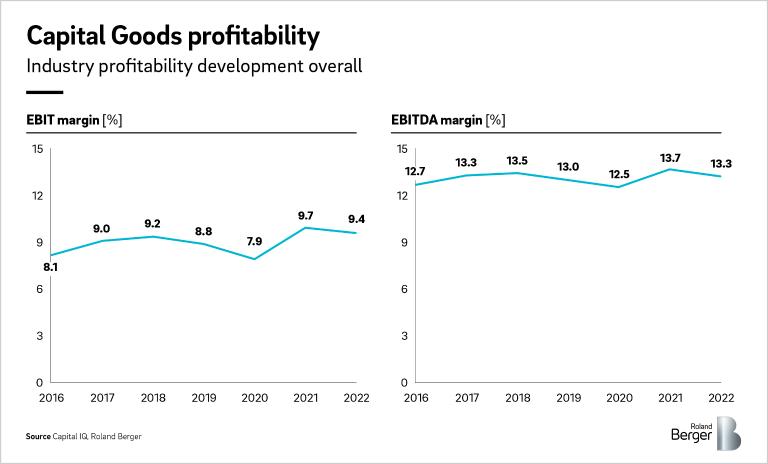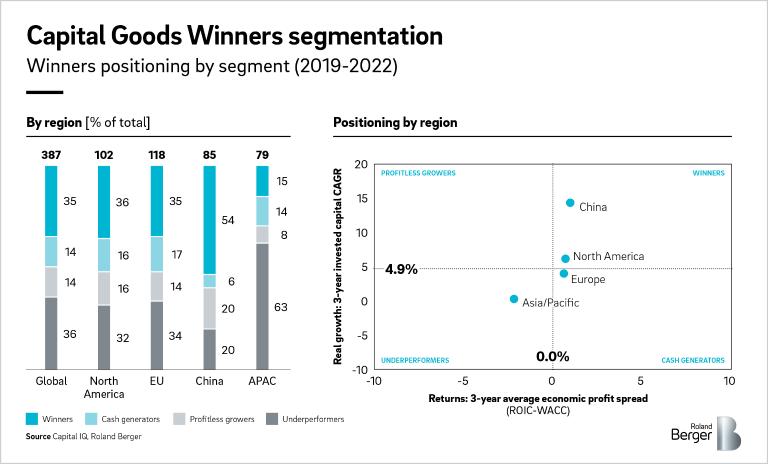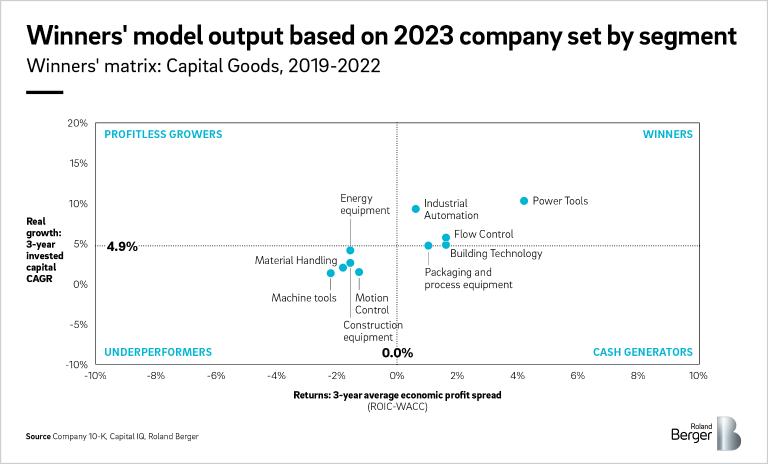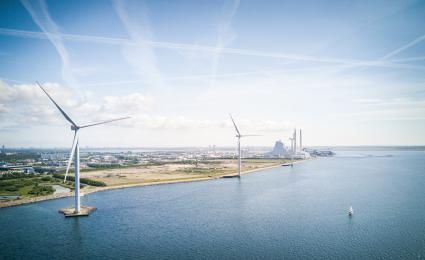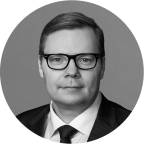New Roland Berger study unveils record sector profits and revenue, but several underlying challenges remain. Here’s what industrial product manufacturers need to know in a changed world.


Capital goods industry in great shape – but for how long?
Roland Berger’s annual deep dive looks ahead to the next two years and beyond, exploring pitfalls and potential
A healthy 2022 is set to be followed by a better 2023. An in-depth Roland Berger study analysis the performance of ten key capital goods industry segments – and the challenges facing each one. It also shows how players can position themselves as winners even in the face of longer-term uncertainty.

"With the significant investments made in North America over the past three years, we anticipate substantial returns that will fuel our future success, potentially surpassing those of our European counterparts."
2022 was a good year for the industry, continuing the recovery witnessed in 2021, which itself was a stunning year. Top-line growth of around 5% – lower than in the prior year but still robust – easily outstripped global GDP growth of 3.2%. This gain was driven by substantial order backlogs and companies’ ability to pass higher raw material input prices on to customers.
While the industry still has fair winds in its sails, the backdrop of the Ukraine war has changed the situation and can no longer be considered transitory. This has caused companies to fundamentally rethink their footprint and structure in the medium term. However, long-term trends remain unchanged as companies continue to realign their portfolios with the megatrends of sustainability and digitalization.
"2022 followed on from the recovery a year earlier, and there is still plenty of upside potential. Those players that position themselves smartly have a bright future ahead."
EBIT margins remained well above pre-pandemic levels, edging down from 9.7% to 9.4% as companies moved to localize supply chains in response to issues born of rising geopolitical tensions. So far, the industry has coped well with high inflation, not only by passing on raw material and other input price hikes, but also by maintaining higher prices of their own (and hence margins) even as raw material prices have fallen again. Profits have hit record levels as a result.
As governments raise interest rates to combat inflation, a broader economic slowdown is making players in this and other industries more reluctant to invest. The capital goods space will certainly feel the effects of these factors going forward. Conversely, however, government programs such as the US’s Inflation Reduction Act and the EU’s new Net Zero Industry Act are stimulating and incentivizing companies to invest in sustainable technologies. These measures should shape technological innovation, guide product development and further boost profitability among capital goods players.
At first glance, Europe and North America appear to have been roughly neck and neck over the past four years. However, heavier investment in capital growth gives North America the edge and should deliver sustained long-term success going forward. China – where more than every second industry player falls into the “winners” category – is streets ahead of both.
"Companies have plenty to do and full order books. So, if input price inflation can be kept in check, 2023 could be a year of record profits."
The years ahead
Our expectation is that 2023 will be another strong year. Last year’s order backlog is still keeping companies busy, so top-line growth should continue. And since material input prices are likely to decline, this could potentially be another year of record profits if current selling prices are sustained.
As the year unfolds, companies must therefore look closely at their pricing discipline and find ways to keep prices at least at current levels. Beyond this, action is needed on several fronts: First and foremost, companies must keep production capacity up and running, allowing them to work off the order backlog and keep customers happy. They must also safeguard supply chain availability throughout this process. At the same time, it is crucial to strike a balance between retaining the right talents and not swelling capacity in a way that would drive up fixed costs and erode their resilience.
It is important to do these things now because, looking further ahead, uncertainty looms in 2024. Existing backlogs will have been worked off by then. Moreover, ongoing geopolitical tensions, the potential for more energy shocks and the possibility of still higher inflation make macroeconomic developments very hard to predict – especially as there has so far been no sudden fall-off in economic activity.
Within this mixed overall picture, ten pivotal segments of the capital goods industry – building technology, construction equipment, flow control, industrial automation, energy equipment, machine tools, packaging and process equipment, motion control, power tools and material handling – each face their own challenges and opportunities. Drawing on its proven Winners’ Framework, Roland Berger has therefore once again examined 295 publicly traded capital goods players, taken a deep dive into each of these individual segments and isolated those factors that set winners apart from the rest.
Register now to access our comprehensive Winners' study, which analyzes the performance of ten critical segments in the capital goods industry and outlines the challenges and opportunities for 2023 and beyond. As a bonus, you'll receive regular updates on the latest developments in the sector.


